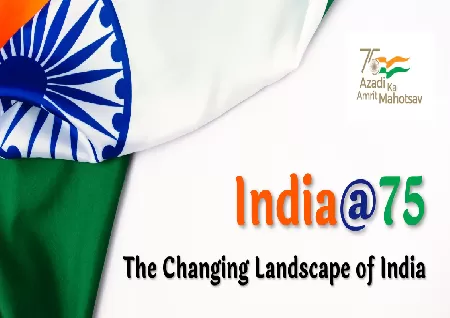What has Indias Constitution meant for gender equality at 75 years of Independence

What has India's Constitution meant for gender equality :Academician Rohini Pande, journalist Barkha Dutt, and historian Rohit De discuss how the Constitution has shaped how women and girls have experienced life.How well has the Constitution performed in bringing about the major changes its authors envisioned for India, particularly in terms of women's and gender rights, the seventy-three years after it came into force on January 26, 1950?The Henry J. Heinz II Professor of Economics and Director of the Economic Growth Center, Rohini Pande, discusses the experience of women and girls in India through the prism of the Constitution with historian Rohit De and journalist Barkha Dutt.According to De, an associate professor of history at Yale University, the Indian Constitution presupposed gender equality. Independence was also considered as a catalyst for a fundamental revolution of society and the economy. He claims that after Independence, when these goals were formed, the problem arose.According to Dutt, the Constitution is always a document of optimism for what India may be, even though what it looked forward to has not been realised. According to Dutt, there is awareness that many goals remain unmet or that many issues are interpretive, but there is also a continuing reinterpretation of what Article 14-the right to equality for all-means.According to Pande, although the suffrage campaign helped relate political empowerment to economic empowerment and women's rights in other sectors, universal suffrage in India did not arise from it. Pande contends that since the Constitution was ratified in India and other nations, there has been significant catch-up in terms of economic and physical rights.Finally, they talk about the Constitution's continued potential and optimism as well as, most importantly, how the other half of India may contribute substantially to this discourse. What transpires, as De wonders, in a society where women have elevated consciousness but males stubbornly hold onto ideas from 20 years ago.With a group of inter-disciplinary experts coming together for the Yale Development Dialogues, this discussion is a special edition of EGC Voices in Development, a podcast series from Yale's Economic Growth Center that examines issues related to sustainable development and economic justice in low- and middle-income countries.
Related queries to this article
- Indias Constitution
- gender equality
- 75 years of Independence
- academician Rohini Pande
- journalist Barkha Dutt
- historian Rohit De
- Yale Development Dialogues
- EGC Voices in Development
Read more articles and stories on InstaSity Trending Topics.